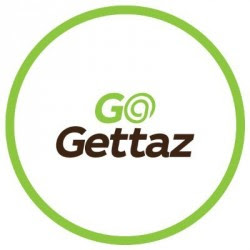Just like the name a man is called is very important; the name your brand is known by is equally very key and important. The name of a brand helps to shape perception either in favour of it or against it. The name of a brand can influence buying decision; it is also a tool for recall and recognition.
When the name of a brand is mentioned, impressions are formed. It is the duty of brand owners to ensure that such impressions formed are positive and are the impressions they seek for their brand from their customers, target audience and general public.
This goes to say that naming your product, service or organization is a very important and integral part of the branding process that should not be left to chance. It should be deliberate, strategic and well thought out.
It is recommended that the brand name should be arrived at after going through a process that involves research, brainstorming, refinement and testing.
The following are some of the various styles for naming brands
- Descriptive: they describe what the product or service it e.g Washerman drycleaner, Brand Communicator Magazine
- Acronyms: examples are IBM, UPS, DHL
- Geographical: these names provide a clue about the geographical location they originate from or serve. Examples are Lagos Business School, Egypt Air
- Invented: these names are made up. They are more or less fabrications that would not be meaningful if they do not stand out. Examples are Exxon, Kodak
- Compound Words: Examples are Facebook, Blackberry, Nairaland
- Foreign Words: Examples are Hygeia,Ubuntu
- Founders / Family names: Examples are Gani Fawehinmi Chambers, Okorie & Sons Limited
- Suggestive: they indicate what the product or service delivers. They can function as a metaphor, analogy, or an association e.g Pampers, Sweet Sensation
These are some points to note when choosing a brand name:
1.It should be easy to pronounce, spell and remember : avoid jawbreakers and mouthful names
- It should not be too long: two to six syllables are ideal
- You should find out what the name means in other languages: This is especially important if you want to play in a global market. A very good name could sound vulgar and offensive in other languages.
- It should resonate with your target audience: Please do not choose a funky name if your target audience are the locals or elderly for instance.
- It should not be too generic; avoid common names and names too close to those of competitors
- Don’t choose a name based on a short- term trend: Many phrases and buzz words that are catchy and trendy now may become boring, overused and annoying a few years down the line. It is therefore not advisable to latch on short term trends in deriving a brand name.
- Your name should not be too descriptive: Your focus may shift or you may want to expand your business offering. Descriptive names may box you and you may have to spend a lot on re-branding.
Seye Olurotimi is an SME Branding Expert, a fellow of the Institute of Brand Management, Nigeria, and a certified trainer with an International Award in Delivering Training (IADT) from TQUK (Training Qualifications United Kingdom). He is equally a versatile learning facilitator, business coach and professional with expertise in the area of Brand










